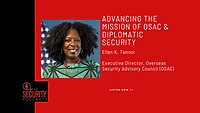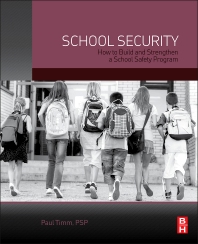Advancing the University of Colorado Hospital’s Security Program


|
|
AlliedBarton Security Services had a program for UCH that was developed based on the best practices gained from its extensive healthcare experiences. |
The University of Colorado Hospital, located east of Denver in Aurora, CO, is one of the leading hospitals in the nation. In 2011, UCH was ranked as the best hospital in the Denver metropolitan area and in the top 10 nationally for Best Medical Schools: Primary Care by US News and World Report.
The UCH system includes primary care and specialty clinics around the state, as well as central facilities at the Anschutz Medical Campus. Built as state-of-the-art in 2006, the campus consists of three zones that promote collaboration and innovation: an education zone with remarkable facilities for training future physicians and other health professionals; a research zone with internationally renowned research; and a clinical care zone with the University of Colorado Hospital and The Children's Hospital.
In Colorado, very few hospitals have an in-house security provider and instead partner with an external security provider to deliver hospital security programs. Changing vendors is never an easy task, but UCH was ready in 2010 to make a switch to gain a higher quality of service, and to help reach one of its “2020 visions”: exceed the expectations of patients, families, staff and faculty.
The quality of security officers and their compassion and sensitivity to the hospital’s culture are important for maintaining the highest possible level of patient and staff security, safety and care. UCH needed to remain focused on the hospital’s 2020 vision when it decided to look for a new security provider, and had to make sure the provider understood its goals.
UCH was also anticipating starting a new program for de-escalating problems with suicidal and behavioral outreach patients. The de-escalation training is a nationally recognized certification program developed by Crisis Prevention Institute. Tom Davis, manager of Support Services for UCH explains, “Certified nursing assistants were not only being physically hurt but being pulled away from their patient care duties to respond to violent or aggressive patients. We needed to find a solution to reduce the violence and make sure staff was kept safe.”

|
|
At UCH, AlliedBarton Ambassadors are adaptable and are trained to adjust to the changing needs of any situation, whether those needs fall into the customer service or security realm – or some combination of the two. |
The hospital also needed to enhance its relationship with security, employees, patients and visitors. “The hospital had expressed its concern for professionalism at the front door,” says Davis. “Whoever was there gave the first impression and the last impression to those entering and exiting. We needed to find the right type of person for this position, and ensure he or she was making an impact for our visitors and staff.”
AlliedBarton Security Services had a program for UCH that was developed based on the best practices gained from its extensive healthcare experiences. It began working with the hospital last September.
In particular, AlliedBarton customized its service for each unique hospital environment. This included the specialized AlliedBarton Ambassador® program.
AlliedBarton Ambassadors are adaptable and are trained to adjust to the changing needs of any situation, whether those needs fall into the customer service or security realm – or some combination of the two. With the hospital’s emphasis on customer service, the program was the right fit.
The hospital’s new platform for de-escalating challenging situations with suicide and behavioral outreach patients was also tied into AlliedBarton’s ability to customize its services for UCH. Gary Melnick, AlliedBarton account manager and program director for UCH, played a vital role in the development and execution of the program.
Due to teamwork with the new de-escalation program and specialized services of the AlliedBarton Ambassador program, the hospital has noticed a positive difference. Additionally, UCH appreciates AlliedBarton’s understanding of the need for compassion and sensitivity when interacting with patients. Staff has positively commented on the new security officers’ professional appearance and the response they have received when calling for assistance.
“Changing security providers, especially at a location with such a large and complex program as our hospital, can be very stressful for all parties,” says Davis. “The key to our success was communication at all levels of both organizations throughout the entire transition period.”
The de-escalation program has shown that the levels of tension for the nurses have been lowered and employees are no longer being harmed. “Since AlliedBarton has taken the lead on this program, the hospital’s workers’ compensation claims have been reduced,” explains Davis.
“Patients and visitors are now familiar with our security officers and the officers have been able to get to know them,” adds Davis. “In the ED, AlliedBarton Ambassadors are able to calm loud or upset individuals, allowing us to build relationships with visitors and patients.”
Looking for a reprint of this article?
From high-res PDFs to custom plaques, order your copy today!








